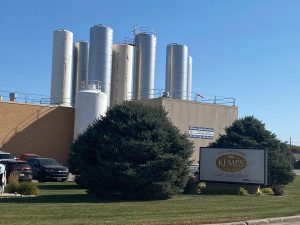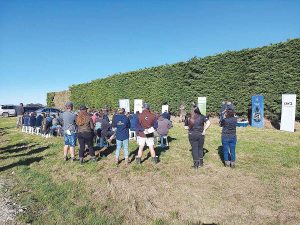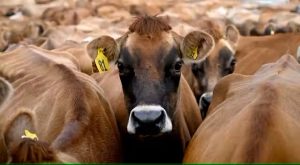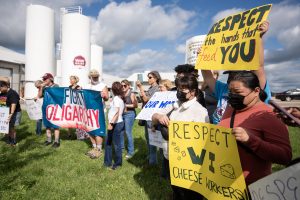
The Government’s phased-in approach to reopening the border has been met with some dismay from the agriculture and horticulture industry, as leaders say it is too late for them. They wanted more self-isolation flexibility and thousands more workers allowed in by now.
The peak dairy season, when calving begins and milking comes on, is to start in late May. Hoggard said the country was about 2000 workers short and he couldn’t see this being addressed in time.
“We have alerted [officials] about this issue for a long time, and the paperwork to get workers in and self-isolate I think would be too slow for dairy,” Hoggard said.
“We have been pressing for self-isolation on farms, but this has not come through as fully as we believe it should have.
“The possible date of more essential workers allowed into New Zealand by mid-April I think is likely to be too late for us, and it is not clear dairy workers would be able to come.”
Milking is in full flow from June 1 across New Zealand, and thousands of people are needed to help with milking and calving. The industry has previously relied on people on holiday visas and seasonal working visas to fill the vacancies that New Zealanders can’t fill.
The border is scheduled to reopen only to vaccinated people from Australia at 11.59pm on February 27.
New Zealanders from other places, eligible travellers, and skilled workers earning at least 1.5 times the median wage can come in from 11.59pm March 13.
At the same time on April 12, the border is set to open to offshore temporary visa holders, with further class exceptions to be considered for critical workers who do not meet the criteria of earning 1.5 times the median wage.

A Government spokesperson from Immigration Minister Kris Faafoi’s office said some agricultural workers could enter and self-isolate at all steps of the border reopening.
He said in December the Government had allocated border exemption spaces for 200 mobile plant machinery operators, 40 shearers and 50 wool handlers, and made the criteria for 200 dairy workers easier to access.
“Further advice on workforce class exceptions and additions to Government-approved lists is being prepared for border ministers to take decisions to ensure seasonal workers, critical workers who don’t meet the 1.5-times-the-median-wage test, and other priority travellers can continue to come to New Zealand until the border is fully re-opened,” he said.}
Federated Farmers’ executive members have scheduled a meeting with Agriculture Minister Damien O’Connor for February 15.
Hoggard said it was not clear whether farmworkers would be allowed to come here by midnight on April 12, and he would raise the matter with O’Connor. He said he would like the April 12 date, where more workers may be allowed in, moved forward if it was safe to do so.
“Hopefully some backpackers will come in time and work on our farms, but we urgently need seasonal workers as well,” Hoggard said.
“The travellers from Germany, Ireland and England in particular are great, because they are used to being on farms and outdoors and pick up on the tasks quickly, and we welcome their arrival.”
The Government spokesman said since June 2020, more than 8000 primary sector workers had been granted visas.

























